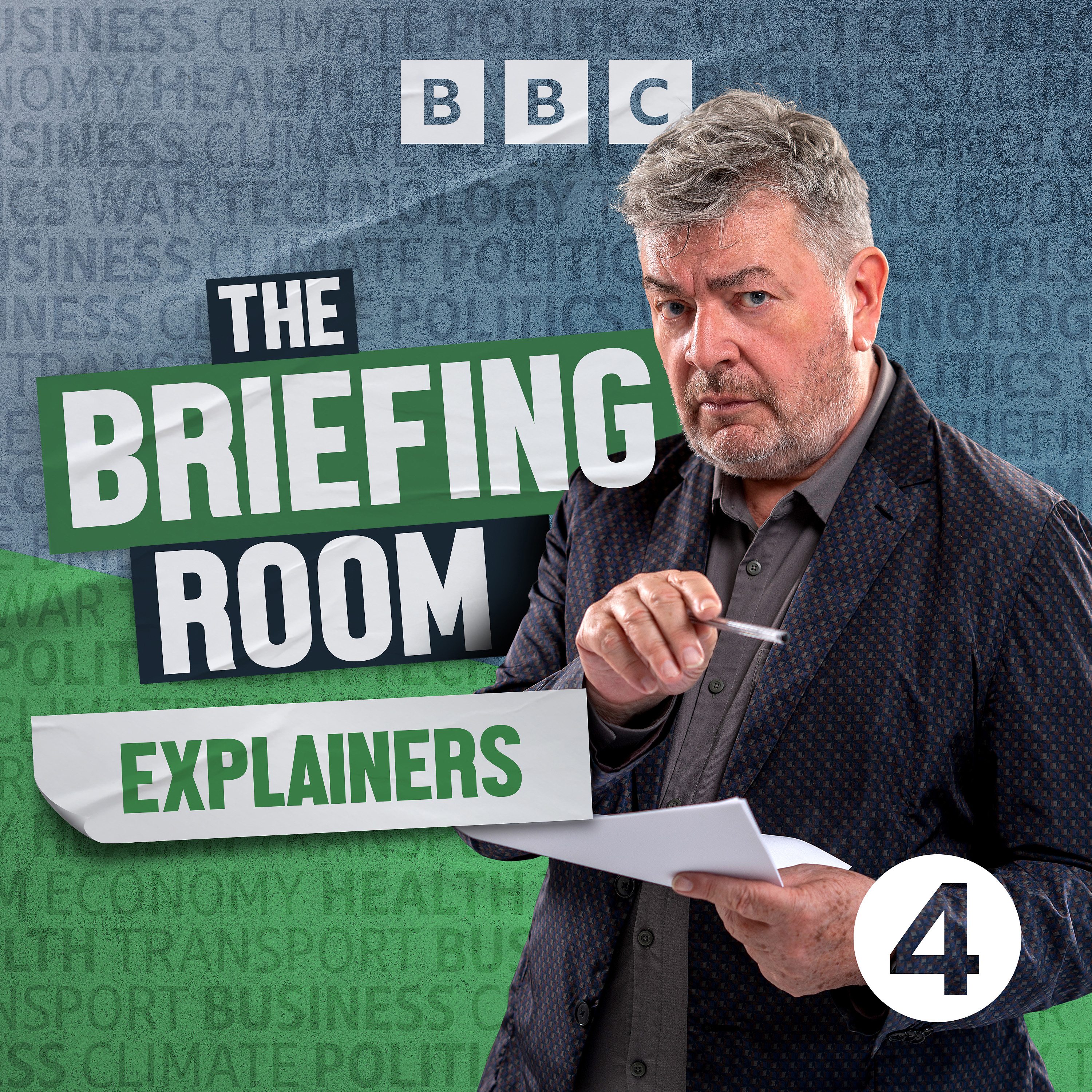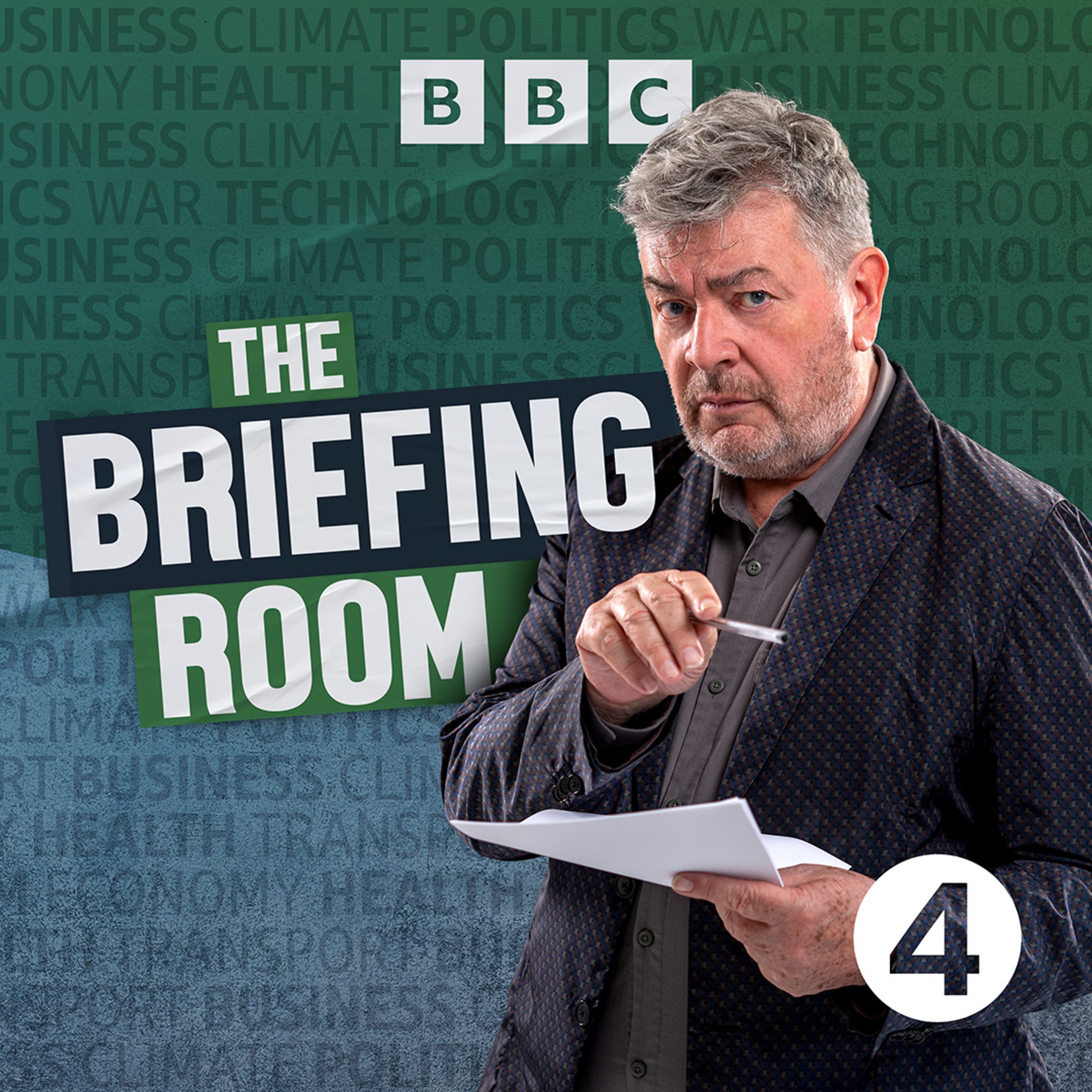
Deep Dive
Shownotes Transcript
BBC Sounds. Music, radio, podcasts. Hello. David here with a new mini-series from The Briefing Room. We're packaging up some bits you may have heard before on other programmes which are still very relevant so they can explain specific things that are going on in the world. In today's Briefing Room Explainer, the history of NATO, an organisation which has come under close and not always complimentary scrutiny from President Trump.
Elizabeth Braw, who is now at the Atlantic Council's Transatlantic Security Initiative, gave us a masterly pre-see of what is NATO and why it was established.
So in 1948, which is now 70 years ago, there was a huge crisis in Berlin. The Soviets who were occupying the eastern part of Germany decided to block all access for any goods going into West Berlin. The Allies came together, the Brits and Americans primarily, and performed a stunning feat of delivering through the so-called Berlin Airlift. It was a really impressive feat of solidarity with those West Berliners.
As a result of that, it dawned on the Allies that they really should become more serious about this sort of forming an alliance. The next year, so 1949, NATO was founded, the North Atlantic Treaty Association, essentially by the Allies who had stuck together during World War II and a few countries that had been occupied by Germany.
There is this famous saying: "NATO was created to keep the Americans in, the Germans down and the Russians out." And in fact, that's really how NATO was founded. Now, it had three official purposes, which was to deter Soviet expansionism, so to keep the Russians out.
forbidding the revival of nationalist militarism in Europe, which I think is essentially saying keep the Germans down, and to keep a strong North American presence on our continent, so keep the Americans in. And that's exactly what happened.
Now, so in 1963, there was a seminal moment in NATO history, the Cuban Missile Crisis. The Americans discovered that the Soviets had put missiles on Cuba, which is very close to the US, and it drove home the point that NATO territory, in this case the US, was not safe from Soviet aggression. NATO needed a centralized and strong military infrastructure and, of course, regular exercises.
Large numbers of American soldiers and other NATO soldiers based in Germany, they constantly exercised together day and night. I was speaking to a British former officer the other day. He said we knew the name of every animal in the forest. That's how well prepared they were. And one engineer has literally started hammering into the Berlin Wall, making a first incision. On the 9th of November 1989, the Berlin Wall collapsed.
And that set in motion a hugely important set of events. And eventually it resulted in the Soviet Union itself collapsing in 1991. Good evening. Eleven Soviet republics agreed to form a new Commonwealth of Independent States today and consigned the Soviet Union to history.
So now NATO had an identity crisis. So what do you do if you're a successful alliance and in fact you're so successful that you don't have any enemies anymore? But NATO remained in existence and that then later proved a good thing when conflicts emerged in Europe again. Nobody realized that a country like Yugoslavia could fall apart so quickly.
disastrously that it would cause wars but that's what happened and so it wasn't NATO territory but after a while NATO was called upon to intervene with military means by bombing and keeping the peace.
Those two Balkan missions also helped NATO redefine what it was about because this was not about territorial defense. It was just about maintaining stability in Europe, even in the sort of farther corner of Europe. And that then helped NATO, I think, also prepare for the new missions that came along with Afghanistan. Today we've had a national tragedy. Two airplanes have crashed into the World Trade Center.
9-11 is a key moment in NATO history. It's not a traditional military attack, clearly. It's a terrorist attack. But NATO has something called Article 5, which means that when one ally is attacked, all the other allies come together to respond to that attack. It's quite interesting, I think, when Donald Trump talks about the lacking solidarity within NATO and how European allies don't pull their weight, that in fact the only way
where NATO has invoked Article 5 is really Afghanistan. And a number of NATO allies really came to the aid of the United States.
Today, NATO is back in what one might call territorial defense mode again. And that really dates back to 2014 with Russia's annexation of Crimea and the conflict in East Ukraine. When it dawned on the rest of Europe that really land warfare is not over. And in fact, it could affect any member states or any other European country. And we are all woefully underprepared for such a situation.
Thanks very much for listening to today's Explainer. We'll be publishing these every week, a new mini-series. So make sure you follow The Briefing Room on BBC Sounds or wherever you get your podcasts so that you don't miss an episode when we publish them. And also remember you can go back and listen to any of our recent episodes on BBC Sounds. They're available now. Until the next time, goodbye.
